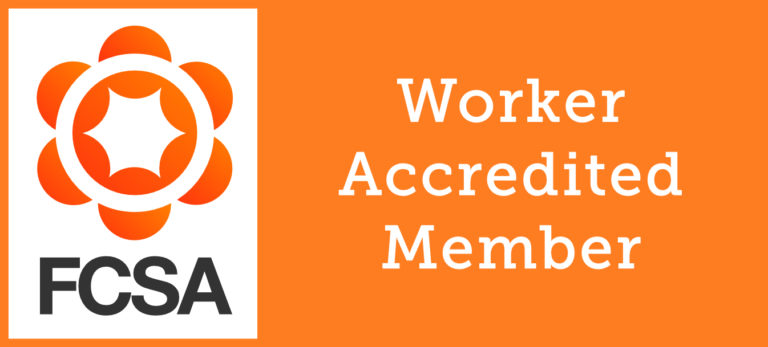
The Covid-19 pandemic has served to highlight the most important things in life, and therefore has prompted a significant proportion of workers to reconsider their career options. One in 4 individuals are looking to quit their job in 2021, with 80% of these individuals citing a lack of challenge, skill development or new career opportunities as their main reason for leaving. Others seek better work/life balance, greater autonomy, more time with family and a desire to see the world and create unique life experiences.
Despite Covid-19, 2021 could provide the perfect chance for a life and career reset: millions are already taking the first steps to a temporary or permanent vocation overseas. Moving abroad can present more challenges for those in freelance, interim or contractor positions; navigating visas, taxes and adapting to an unfamiliar working lifestyle can be daunting, especially for those who are self-employed or committing to a new employer.
Generate’s payroll and contractor management specialists have experience across 90 countries internationally. Here Generate’s experts provide everything you need to know about becoming a contractor in Norway.
How to Become a Contractor in Norway
1. Visas
Whilst EU nationals will continue to benefit from the European Union’s laws on Freedom of Movement, British residents must adhere to different rules following 1st January 2021. Although UK residents can travel to Norway for up to 90 days without requiring any visa, foreign nationals wanting to work must apply for a temporary residence permit, which also covers self-employed individuals. After three years of work, individuals can apply to become permanent residents, which enables them to live and work in the country indefinitely.
Individuals can apply to the Norwegian Embassy for a permit. Applications normally require the support of several documents, such as travel insurance, proof of accommodation and proof of the ability to support yourself financially. Find out more about applying for a permit.
2. Tax
Whilst most countries seek to tax those working on their soil, contractors on shorter assignments may not need to pay tax in Norway. Working individuals will only become Norwegian tax residents after staying in the country for just over six months – more than 183 days to be exact – during a period of one year. Returning freelance and contract professionals will become Norwegian tax residents upon staying for more than 270 days across three years; both one- and three-year periods include half or part days stayed in the country.
Tax residents in Norway are generally liable for tax on all income and wealth both in Norway and abroad. These individuals must pay tax on income earned during the calendar year, which includes tax on pay and other income such as interest, shares or property rental. Income tax is at 22% and can vary depending on your income, with higher earners paying more tax and lower earners less proportionately. Wealth tax is also calculated by calendar year, which taxes individuals on assets such as property, vehicles, bank deposits and shares. Find out more about tax in Norway.
Contractors staying under 6 months, who are not tax residents, will not need to pay income or wealth tax, for either wealth or income generated in Norway or abroad.
Generate’s payroll specialists recommend that contractors moving overseas consult a tax advisor or accountant in your destination country before you move, to help ensure as smooth a compliant transition as possible.
3. Employment Prospects
Despite enjoying a high employment rate and prosperous economy, the Norwegian business sector and public services suffer several skills shortages. The nation is particularly welcoming to those in professions where contract assignments are more popular. Teachers, carers, engineers and computer programmers all rank in the top 10 of the official Shortage Occupation List.
Norwegians’ professional way of life is more relaxed than many others around the world. Residents benefit from a healthy work-life balance that allows the population plenty of free time. A generous parental leave system is just one way that employers reinforce the importance of family life. Working parents have a legal right to childcare and employers offer further flexibility when needed.
To find a contract role in Norway, individuals can register with a local or international recruitment agency, or apply for available jobs on various websites. The country’s most popular job boards include:
4. Reasons to Work in Norway
The country offers a wealth of experiences for residents and visitors alike. The top reasons for living and working in Norway include:
- Happiness – Norway consistently ranks as one of the best places to live in the world, and in 2020 the United Nations declared the nation the number one best country to live in across the globe. The rankings take into consideration the levels of happiness of the population, the climate, financial stability, health and gender equality.
- Landscape – The nation is fully committed to renewable energy and sustainable living practices to protect its natural environment.From fjords, forests and lakes to mountains and uninhabited islands, the landscape provides the natural environment for every taste and every season.
- Culture – Like the other Nordic countries, Norwegians informally follow customs and practices of an egalitarian code called The Law of Jante. Nordic societies most value equality, humility, simplicity and respect for all other people. Citizens tend to refrain from celebrating individual achievements and instead focus on collaboration, and friends and colleagues are valued much more for their honesty and benevolence than their wealth, material possessions or professional achievements.
- History – Famous for its Viking heritage, Norwegian culture and traditions were heavily influenced by the fierce warriors and seafarers of legends. The nation has incredibly close ties with its Scandinavian neighbours and the country itself is only 115 years old: the Kingdom of Denmark-Norway lasted for more than 270 years until the Norwegian parliament declared independence in 1905.
Start Your Next Contracting Role
Discover 5 Ways to Identify a Transparent, Compliant Umbrella Company.
In need of advice on compliance, tax or anything related to payroll? Generate’s specialist team are here to help.











